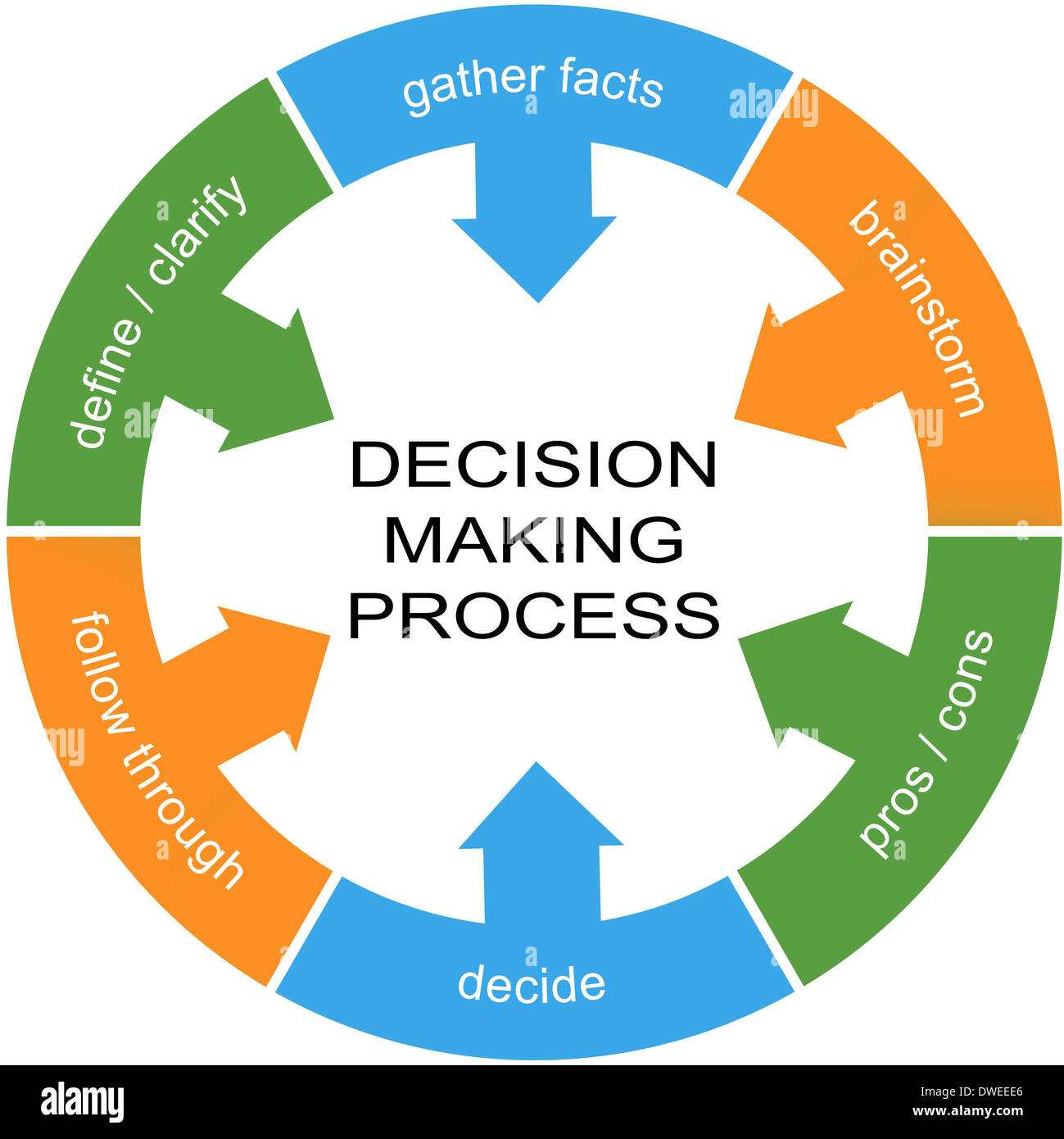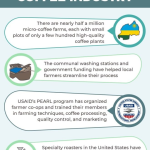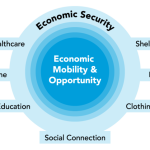Business decision-making is a critical process that influences the trajectory of organizations and the wellbeing of stakeholders. In today’s complex and rapidly evolving corporate landscape, leaders are tasked not just with making choices that maximize profits, but also with emphasizing business ethics and ethical decision making. Understanding the implications of cognitive biases in business can aid executives in crafting effective decision-making strategies that embrace transparency and responsibility. As leaders navigate these multifaceted decisions, they must also consider the ethical ramifications of their actions, ensuring that their strategies do not stray into legal gray areas. By fostering a culture of informed, ethical decision-making, businesses can enhance their integrity and navigate the challenges they face in a globalized economy.
The process of making business choices extends far beyond mere numerical analysis; it encompasses the moral and ethical considerations inherent in corporate operations. Often referred to as organizational judgment or strategic decision-making, this intricate endeavor is laden with complexities that demand leaders to reflect on their responsibilities and the broader impact of their decisions. With the advent of digital transformation and increasing regulatory scrutiny, company executives must embrace various decision-making styles that not only prioritize profit but also adhere to the tenets of ethical conduct. As we dissect the nuances of managerial decision-making, it becomes vital to recognize the interplay between individual biases and the ethical frameworks that shape corporate governance, ensuring that the outcomes are both sound and just.
The Evolution of Business Ethics in Decision-Making
Over the last few decades, the landscape of business ethics has significantly transformed, reflecting the growing complexities of the global market. Initially, business ethics focused primarily on applying classical moral philosophies, such as utilitarianism and deontology, to specific situations. Educators in business schools applied these philosophical frameworks to teach students about ethical behavior. However, the current approach has shifted towards understanding the context surrounding ethical dilemmas. Instead of a top-down application of theories, there’s an emphasis on analyzing the specific circumstances of each case, allowing for a more nuanced understanding of what constitutes ethical decision-making in today’s intricate business environments.
This evolution coincides with the rise of global interdependencies and technological advancements. Modern businesses operate in a context where ethical considerations are no longer black and white but rather filled with shades of gray due to varying cultural norms and regulatory environments. The introduction of new technologies, particularly artificial intelligence and automation, has also posed unique ethical challenges. For instance, questions arise around intellectual property rights and employee rights in the era of AI. As businesses grapple with these evolving issues, the tactics they employ for ethical decision-making must also adapt, fostering an ethical culture that aligns with the complexities of contemporary commerce.
Understanding Cognitive Biases in Business Decisions
Cognitive biases play a crucial role in shaping decision-making processes within business contexts. These unconscious biases can lead executives and managers to make flawed judgments, particularly when faced with ambiguous situations. For example, an executive may deny ethical challenges because they do not fit their preconceived notions or biases, creating a false sense of clarity where none exists. This is particularly dangerous in scenarios where decisions may tread into legally gray territories, obscuring the line between ethical and unethical behavior. To combat these biases, it is essential for decision-makers to actively seek diverse perspectives and engage in critical reflection before arriving at conclusions.
Additionally, organizations can implement structured decision-making processes to mitigate the effects of cognitive biases. Techniques such as brainstorming sessions, devil’s advocacy, and scenario planning can help illuminate the factors that influence decisions while ensuring that ethical considerations are prioritized. By acknowledging and addressing cognitive biases, leaders can improve their decision-making capacity, ultimately leading to more responsible and ethical business outcomes. Creating an environment conducive to open dialogue about possible biases not only strengthens individual decision-making but also promotes accountability in business decision-making overall.
Strategies for Ethical Decision-Making in Complex Situations
Navigating complex ethical dilemmas requires a robust decision-making strategy that goes beyond basic analytical skills. Decision-makers must first establish a framework for assessing the nuances of each situation, considering multiple stakeholder perspectives. This process involves identifying what truly matters in a given scenario, recognizing the ethical and legal implications, and evaluating the potential impacts of various decisions on stakeholders. Ethics should not merely be an afterthought but an integral part of the overall strategy guiding the company’s decisions.
Moreover, leaders should employ reflective practices to continually evaluate their decision-making processes. These practices can take many forms, such as discussions with trusted colleagues or setting aside time for personal reflection. By frequently questioning their motives and the implications of these decisions, leaders can guard against self-serving outcomes and promote a culture of ethical responsibility within their organizations. This continuous cycle of reflection and reassessment not only enhances the quality of business decision-making but also fosters trust among employees and stakeholders.
The Role of Stakeholders in Ethical Decision-Making
Today’s corporate environment demands that companies consider their stakeholders’ needs when making ethical decisions. In addition to shareholders, businesses are increasingly held accountable by customers, regulators, employees, and the broader community. This shift necessitates a more inclusive approach to decision-making, where diverse opinions and interests are weighed carefully. By engaging with stakeholders throughout the process, businesses can gain invaluable insights that facilitate richer, more ethical outcomes. This stakeholder engagement not only enhances the legitimacy of decisions but also fortifies a company’s reputation and long-term sustainability.
Incorporating stakeholder feedback into decision-making strategies can be challenging due to conflicting interests. However, effective leaders find common ground by aligning both ethical obligations and business objectives. By fostering a culture of transparency and open communication, companies can better navigate the complexities that arise from these multiple interests. Ultimately, an ethical decision-making framework that prioritizes stakeholder engagement paves the way for more responsible and sustainable business practices, driving success in a world where corporate responsibility is increasingly scrutinized.
Navigating Legal Gray Areas in Business
Navigating the legal gray areas in business is both a challenge and a necessity for today’s companies. As markets become more interconnected and regulations more intricate, ethical dilemmas often arise where the boundaries between acceptable conduct and legal violations may appear blurred. Executives must be equipped with decision-making strategies that allow for thoughtful consideration of not only the letter of the law but also the spirit of ethical business practices. This includes discerning how to balance the pursuit of profit with responsible behavior that aligns with the company’s values.
The best approach involves a commitment to ethical vigilance, where organizations develop clear guidelines and policies that inform their decision-making processes. Training sessions that focus on real-world implications of ethical decisions can also prepare employees to navigate these complexities effectively. By cultivating an organizational culture that values ethical considerations as drivers of business decisions, companies can empower their leaders to handle gray areas with integrity and confidence. This proactive approach not only protects the company from legal repercussions but also fosters trust among employees and stakeholders who expect accountability.
Reflection as a Tool for Better Decision-Making
Reflection plays a vital role in improving decision-making in business contexts. It allows leaders to step back from immediate pressures and consider the broader implications of their decisions. Engaging in reflection helps executives identify their core values and responsibilities, as well as gauge their ethical stance on issues at hand. Techniques such as mindfulness, journaling, or group discussions can facilitate deeper introspection, leading to more thoughtful decisions that align with the organization’s ethical standards.
Moreover, fostering a culture of reflection within an organization promotes collective learning among employees. When teams are encouraged to discuss past decisions, analyze outcomes, and share lessons learned, they cultivate a shared understanding of ethical boundaries and decision-making strategies. This collaborative practice not only enhances individuals’ decision-making skills but also strengthens the entire organization’s commitment to ethical conduct, ensuring that everyone is aligned in their pursuit of sound business practices.
Creating a Framework for Ethical Decision-Making
Establishing a comprehensive framework for ethical decision-making is crucial for guiding business leaders through complex challenges. Such a framework should encompass core values, ethical principles, and decision-making models designed to help executives evaluate the implications of their choices thoroughly. Organizations may implement specific guidelines that outline the steps to take when faced with ethical dilemmas, fostering a systematic approach to decision-making that is consistent and reliable. This structured methodology is essential for equipping leaders to counter external pressures that could lead them astray from ethical practices.
In addition to a formal framework, companies should emphasize the importance of ongoing training and education regarding ethics in business decision-making. Workshops, seminars, and discussions on real-life scenarios are excellent ways to reinforce the principles embedded within the framework. Regularly engaging employees across all levels ensures that ethical considerations remain at the forefront of decision-making processes, ultimately becoming a part of the organizational culture. A strong framework not only guides day-to-day operations but also positions the company as a leader in ethical conduct within its industry.
Overcoming Ethical Challenges in Business Leadership
Business leaders often encounter ethical challenges that require them to balance competing interests and values. Navigating these complexities demands not only technical skills but also a deep understanding of ethical principles and an unwavering commitment to integrity. For example, leaders may face situations where financial pressures tempt them to make decisions that compromise ethical standards. Equipping leaders with the tools to address these challenges is essential for fostering a culture of integrity within their organizations.
One effective strategy involves role-playing and scenario analysis, which allow leaders to simulate challenging ethical situations and practice their responses. By preparing executives to face difficult choices in a supportive environment, organizations can build resilience and confidence in their leadership teams. This proactive approach not only prepares leaders to make ethical decisions in real time but also underscores the value of ethical conduct in achieving long-term success while mitigating the risk of reputational damage from unethical practices.
The Importance of Ethics in Business Decision-Making
Ethics is at the heart of business decision-making, influencing every aspect of how organizations operate, from stakeholder interactions to strategic planning. When companies prioritize ethical considerations, they not only build trust within their communities but also enhance their reputations in the marketplace. Ethical companies are often more resilient, as they attract loyal customers and employees who value integrity and accountability. This alignment between ethics and business success underscores the importance of incorporating ethical principles into the core of decision-making strategies.
Moreover, a strong commitment to ethics can differentiate a business in competitive markets. Organizations that actively embrace and communicate their ethical values often find that it resonates with consumers and partners alike, fostering loyalty and collaboration. By embedding ethical practices into their organizational culture, businesses set a standard that encourages employees to act ethically in all interactions. This foundational emphasis on ethics leads to better decision-making, benefiting not only the organization but also society as a whole.
Frequently Asked Questions
What are effective decision-making strategies in business ethics?
When tackling business ethics, effective decision-making strategies include a thorough analysis of the situation, evaluating the potential consequences for all stakeholders, and prioritizing transparency. It is crucial to apply ethical frameworks systematically to navigate complex decisions, ensuring that all perspectives are considered.
How can cognitive biases affect business decision-making?
Cognitive biases can significantly distort business decision-making by leading executives to misinterpret information, overlook critical data, or favor decisions that serve personal interests over ethical considerations. Understanding these biases is essential to fostering a fair and rational decision-making environment.
What role does ethical decision making play in complex business decisions?
Ethical decision making is vital in complex business decisions as it helps balance competing values and interests. By focusing on ethical principles, executives can navigate gray areas, ensuring that their choices align with the company’s core values and responsibilities to all stakeholders.
How do business leaders overcome challenges in ethical decision making?
Business leaders can overcome challenges in ethical decision making by fostering a culture of open dialogue, encouraging diverse perspectives, and employing collaborative approaches in decision-making processes. Utilizing frameworks for ethical analysis can also provide clarity in ambiguous situations.
What are some common ethical dilemmas in business decision-making?
Common ethical dilemmas in business decision-making include conflicts of interest, issues of transparency, and balancing shareholder versus stakeholder interests. Navigating these dilemmas requires critical thinking and a strong ethical foundation to achieve responsible outcomes.
How can companies address cognitive biases in their decision-making processes?
Companies can address cognitive biases by implementing structured decision-making processes that include diverse teams, seeking third-party perspectives, and promoting a culture of feedback. This helps ensure that decisions are based on objective analysis rather than subjective influences.
What is the importance of analyzing complex decisions in business?
Analyzing complex decisions is crucial in business as it allows leaders to assess risks, understand stakeholder impacts, and develop strategies that align with both ethical standards and business goals. A thorough analysis promotes informed decision-making and helps prevent unethical outcomes.
How can reflection improve business decision-making and ethical standards?
Reflection improves business decision-making by allowing leaders to evaluate their choices critically, recognize potential biases, and reaffirm their ethical commitments. This practice fosters clarity and confidence, ensuring that decisions are not only practical but also ethically sound.
What factors influence ethical decision-making in businesses today?
Factors influencing ethical decision-making in businesses today include the increasing complexity of global regulations, stakeholder expectations, advancements in technology, and societal shifts towards corporate accountability. Leaders must consider these dynamics when making decisions that affect their companies and society.
How do legal considerations intersect with ethical decision-making in business?
Legal considerations are closely intertwined with ethical decision-making in business, as laws often reflect societal values and expectations. While compliance with legal standards is crucial, ethical decision-making requires leaders to go beyond mere legality to consider the broader implications of their actions.
| Key Points |
|---|
| Joseph Badaracco emphasizes the importance of hitting pause when faced with complex decisions in business to prevent poor choices. |
| Business ethics has shifted from a top-down moral philosophy approach to a more situational bottom-up perspective, considering the specific circumstances of the decision. |
| Ethical challenges are more complex today due to the interconnected nature of businesses and their responsibilities to various stakeholders. |
| Decision-making is more akin to an art than a science, requiring careful consideration of diverse factors rather than strict logical conclusions. |
| Mitigating cognitive biases through collaboration and reflection can help in making more ethical and responsible decisions. |
| Reflection methods, like visualization or discussing with trusted friends, are essential for gaining clarity in decision-making. |
Summary
Business decision-making requires a robust ethical framework to navigate the complexities of today’s corporate landscape. The evolution of business ethics over the past thirty years highlights the importance of situational awareness and stakeholder responsibility. By employing strategies like pausing to reflect and collaborating to mitigate biases, decision-makers can develop a deeper understanding of their core responsibilities, which leads to more sound and ethical outcomes. In an environment where ethics can often seem ambiguous, these techniques are essential for ensuring that business leaders make choices that are not only legally sound but also ethically responsible.










